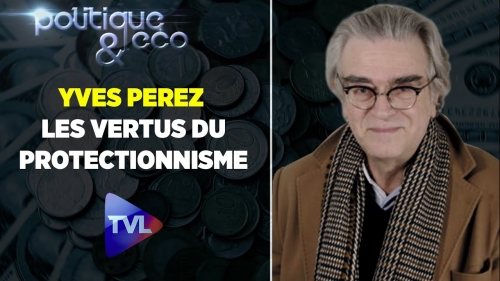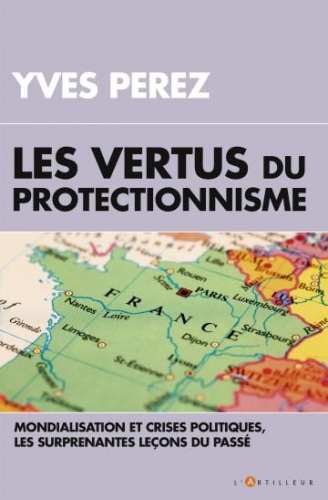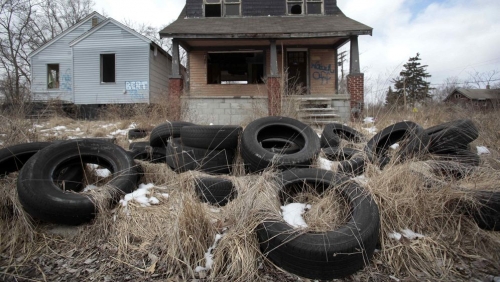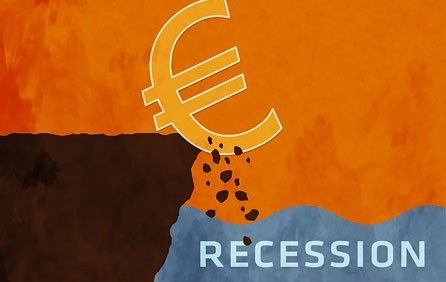A la suite du texte de Moon of Alabama intitulé « La Chine réprime ses grosses entreprises technologiques au profit de son peuple« , Bruno Guigue apporte le recul pour mieux comprendre.
Par Bruno Guigue
Ex: https://lesakerfrancophone.fr/letat-stratege-moteur-de-la-reussite-chinoise
Le Parti communiste chinois a été fondé en juillet 1921. Cent ans plus tard, la réussite spectaculaire de la Chine bouleverse les idées reçues. Après avoir libéré et unifié le pays, aboli le patriarcat, réalisé la réforme agraire, amorcé l’industrialisation, doté la Chine du parapluie nucléaire, vaincu l’analphabétisme, donné aux Chinois 28 ans d’espérance de vie supplémentaire, mais aussi commis des erreurs dont le peuple chinois a tiré les leçons, le maoïsme a passé la main. Ses successeurs ont tenu compte des inflexions de la vie internationale, mais sans jamais lâcher le gouvernail. Depuis trente ans, les Chinois ont multiplié leur PIB, vaincu la pauvreté, élevé le niveau technologique du pays de façon impressionnante.
Certes des problèmes demeurent, considérables : l’inégalité des revenus, le vieillissement de la population, les surcapacités industrielles, l’endettement des entreprises. Il n’empêche que la Chine avance à grands pas. Elle construit sous nos yeux une «société de moyenne aisance», développe son marché intérieur, accélère la transition écologique. Le maoïsme voulait développer les forces productives tout en transformant les rapports de sociaux. Avec «la réforme et l’ouverture», le changement est radical, mais l’objectif demeure : construire une société socialiste.
En attirant capitaux et technologies, les réformes de la période post-maoïste ont dopé la croissance. Pilotées au plus haut niveau du Parti-État, elles ont été conduites en trois étapes. La première vise l’agriculture : elle commence en 1979 avec le relèvement des prix agricoles et l’autonomie des équipes de production. Les communes populaires, vastes unités de production créées lors de la collectivisation, sont progressivement démantelées. Le processus s’accélère lorsque le double interdit pesant sur l’exploitation forfaitaire familiale et la distribution de la terre entre les foyers est levé.
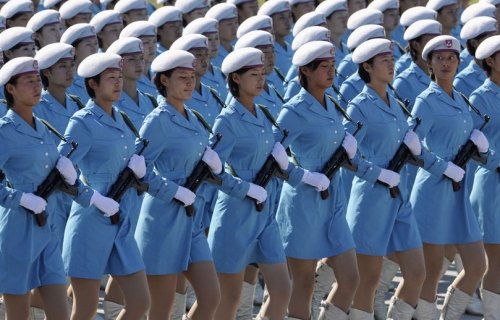
Un cap décisif est franchi en mars 1981 lorsqu’une directive centrale invite les collectivités agricoles à adopter des modes de production appropriés au contexte local. A la fin de 1983, la plupart des familles paysannes ont adopté la formule de l’exploitation forfaitaire familiale : les terres restent soumises à un régime de propriété collective, mais elles sont réparties contractuellement entre les foyers en vue de leur exploitation. Les contrats sont signés pour une période de trois à quatre ans, puis ils sont prolongés à trente ans afin d’encourager les investissements à long terme.
La généralisation de ce «système de responsabilité» contribue à l’amélioration des performances de l’agriculture chinoise, qui bénéficie au même moment des avancées techniques réalisées à l’époque maoïste : sélection des semences, mécanisation, usage des engrais. La croissance de la production permet au gouvernement de lever le monopole étatique sur le commerce des céréales, puis sur l’ensemble des productions agricoles. Les échanges commerciaux orientent désormais la production, encourageant la spécialisation des régions productrices et la diversification des cultures, certaines familles se spécialisant dans l’élevage, la pisciculture, le thé ou la sériciculture. En définitive, la réforme de l’agriculture a rétabli le système d’exploitation instauré par la révolution agraire de 1950, la modernité des équipements en plus.
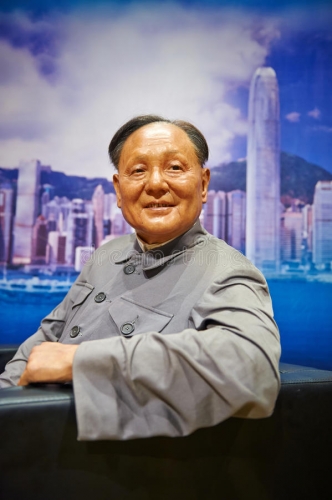
La deuxième étape des réformes, au cours des années 1980-2000, vise le secteur industriel. L’ouverture de l’économie chinoise, de la création des «zones économiques spéciales» à l’entrée dans l’OMC, voit affluer les investissements extérieurs. La Chine se spécialise d’abord dans les industries à forte intensité de travail et à faible valeur ajoutée: jouets, textiles, composants électroniques. Le pari de Deng Xiaoping, c’est de provoquer la modernisation de l’économie par une intégration au marché mondial. Maîtrisée par un État-stratège, cette ouverture est une réussite : les investissements directs étrangers s’envolent. Industrialisation rapide, qui stimule l’activité, elle risque toutefois d’accroître la dépendance de la Chine envers le marché mondial.
La troisième étape des réformes, dans les années 2001-2021, voit le retour en force d’un État-investisseur, qui se mobilise notamment pour faire face à la crise financière de 2008 et à ses conséquences. Politique volontariste, qui accorde la priorité au marché intérieur et à la modernisation des infrastructures. Politique, surtout, qui mise sur l’innovation technologique. Adopté en 2015, le plan «Made in China 2025» accélère la montée en puissance d’une économie à forte valeur ajoutée. La croissance chinoise repose désormais sur le numérique, l’informatique, les énergies renouvelables, l’intelligence artificielle, les véhicules électriques, etc..
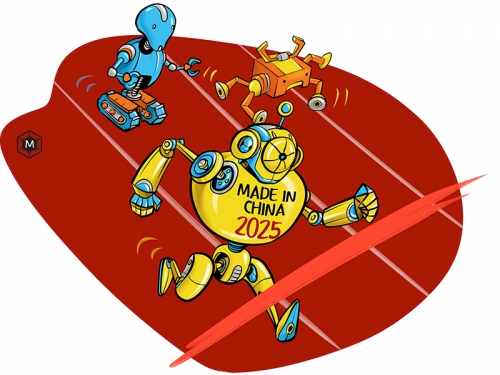
Pour conduire cette politique, la Chine s’est affranchie du «consensus de Washington» et de ses dogmes libéraux : la privatisation du secteur public, la déréglementation des activités financières, le dessaisissement de l’État au profit des entreprises transnationales et des institutions comme le FMI et la Banque mondiale. Au contraire, les dirigeants chinois ont consolidé un puissant secteur public dont les entreprises sont omniprésentes sur les grands chantiers, en Chine comme à l’étranger. Relevant du secteur public, les banques sont au service du développement, et non de leurs actionnaires.
Dirigé par le Parti communiste, l’État chinois n’est ni l’instrument docile de l’oligarchie financière mondialisée, ni l’exécutant d’une nouvelle bourgeoisie indifférente aux besoins de la population. C’est un État souverain, investi d’une mission stratégique : faire de la Chine un pays prospère. Au début des années 2000, Washington misait sur l’intégration économique de la Chine pour précipiter sa décomposition politique. Soumise à des multinationales brandissant la bannière étoilée, la Chine devait accomplir la prophétie du néolibéralisme en levant le dernier obstacle à la domination du capital mondialisé. L’inverse a eu lieu : Pékin a utilisé les multinationales pour accélérer sa mue technologique et ravir à Washington la place de leader de l’économie mondiale.
Lors de la crise de 2008, face au chaos provoqué par la dérégulation néolibérale, Washington s’est montré incapable de réguler la finance. Prisonnier de l’oligarchie bancaire, il s’est contenté de creuser le déficit public pour renflouer les banques privées, y compris celles qui étaient responsables, par leur cupidité sans bornes, du marasme général. Pékin, au contraire, a pris ses responsabilités en procédant à des investissements massifs dans les infrastructures publiques. Ce faisant, il a amélioré les conditions de vie du peuple chinois tout en soutenant la croissance mondiale, sauvée du plongeon auquel la promettait la rapacité de Wall Street.
Dire que la Chine est devenue «capitaliste» après avoir été «communiste» relève d’une vision naïve du processus historique. Qu’il y ait des capitalistes en Chine ne fait pas de ce pays un «pays capitaliste», si l’on entend par cette expression un pays où les détenteurs privés de capitaux contrôlent l’économie et la politique nationales. On a sans doute mal interprété la célèbre formule du réformateur Deng Xiaoping : «Peu importe que le chat soit blanc ou gris, un bon chat attrape les souris». Elle ne signifie pas que le capitalisme et le socialisme sont interchangeables, mais que chacun des deux systèmes sera jugé sur ses résultats.

Une forte dose de capitalisme a donc été injectée pour développer les forces productives, mais le secteur public demeure la colonne vertébrale de l’économie chinoise : représentant 40% des actifs et 50% des profits générés par l’industrie, il prédomine à 80-90 % dans les secteurs stratégiques : la sidérurgie, le pétrole, le gaz, l’électricité, le nucléaire, les infrastructures, les transports et l’armement. Toute activité importante pour le pays et pour son rayonnement international est étroitement contrôlée par l’État. L’ouverture était la condition du développement des forces productives, et non le prélude à un changement systémique.
Cette nouvelle voie chinoise vers le développement n’est pas exempte de contradictions. Contrairement à l’image véhiculée par le discours officiel, la société chinoise est une société traversée par la lutte des classes. Avec l’introduction des mécanismes de marché, la flambée des inégalités et la précarité de l’emploi, dans les années 2000, ont frappé des millions de jeunes ruraux, qui sont venus grossir les rangs des travailleurs migrants. La constitution de cette nouvelle classe ouvrière, qui a bâti la Chine d’aujourd’hui, a généré de vigoureuses luttes sociales.
La grève victorieuse des 2000 ouvriers de l’usine Honda de Foshan, en 2010, a acquis une valeur emblématique : elle a eu pour résultat une augmentation des salaires et une réforme des syndicats. Longtemps laissés-pour-compte des réformes, les travailleurs migrants ont obtenu leur régularisation à coups de grèves massives. Aujourd’hui, 80% des salariés chinois appartiennent au secteur déclaré, avec contrat et protection à la clé, tandis qu’en Inde la proportion est inverse : 80% des salariés relèvent du secteur informel.

Cette multiplication des conflits sociaux n’a pas été pas sans effet sur l’évolution des salaires. En janvier 2021, la presse chinoise indiquait que le salaire mensuel moyen dans 38 grandes villes avait atteint 8 829 元 (yuans), soit 1123 €. Or ces données doivent être complétées avec des éléments sur le coût de la vie. Avec un salaire moyen de 1123 €, les salariés chinois des grandes villes disposent d’un pouvoir d’achat largement supérieur à celui d’un salarié français rémunéré au SMIC. A titre d’exemple, le ticket de métro à Guangzhou coûte entre 2 et 4 元 , soit entre 0,25 et 0,50 €, contre 1,90 € à Paris. A Nanning (Guangxi), le ticket de bus coûte 1 元 , soit 0,15 €, contre 1,60 € à Toulouse.
Autre donnée intéressante : en Chine comme en France, il existe un salaire minimum. Les autorités provinciales fixent le montant du salaire minimum dans chaque région, en fonction du niveau de développement et du coût de la vie. Shanghai a le salaire minimum le plus élevé. Or ce salaire minimum a été constamment augmenté, parfois de plus de 20 % par an, poussant vers le haut l’ensemble de la grille salariale. Au cours des vingt dernières années, le salaire moyen urbain a été multiplié par huit.
La Chine est-elle socialiste ? Assurément, si on définit le socialisme comme un régime dans lequel la collectivité détient les principaux moyens de production et d’échange ; et non seulement les détient, mais les utilise de telle sorte qu’il en résulte une amélioration constante des conditions d’existence de la population. Pour atteindre cet objectif, la Chine s’est dotée d’une économie complexe, associant une multitude d’opérateurs publics et privés. Véritable économie mixte, elle est placée sous la tutelle d’un État qui possède le tiers de la richesse nationale ; qui oriente l’activité économique conformément aux orientations fixées par le plan quinquennal ; qui fait corps avec le Parti communiste, garant historique d’un développement à long terme.
Aujourd’hui, l’excédent commercial chinois représente à peine 2% du PIB, et le marché intérieur est en plein essor. Les Occidentaux qui s’imaginent que la Chine vit de ses exportations feraient mieux de regarder les chiffres : la Chine est deux fois moins dépendante du commerce extérieur que l’Allemagne ou la France. Contrairement à l’Union européenne, où les salaires stagnent, les Chinois ont vu leur salaire moyen multiplié par huit en vingt ans. Chez nous, l’État est une fiction : il a tout vendu, et il est endetté jusqu’au cou. En Chine, il détient 30% de la richesse nationale, et ses entreprises publiques sont des leaders mondiaux. C’est un État souverain, quand le nôtre obéit à Bruxelles. Quand il faut faire face à une pandémie, il construit 17 hôpitaux et règle le problème en trois mois.

Marteler que «la Chine est capitaliste» n’a pas beaucoup de sens. Heureusement pour les Chinois, ils n’ont pas attendu l’heureux effet de l’autorégulation des marchés pour atteindre leur niveau de vie actuel. Il suffit de comparer la Chine avec le seul pays avec lequel la Chine est comparable, compte tenu de son poids démographique et de sa situation initiale. Affichant dix ans d’espérance de vie supplémentaire et un PIB quatre fois supérieur, la Chine socialiste court largement en tête devant l’Inde capitaliste, régulièrement consacrée comme «la plus grande démocratie du monde» en dépit de la misère qui y règne.
Certes, la Chine n’est pas communiste au sens où Marx entendait le communisme, stade de la société qui doit un jour succéder au socialisme : une société transparente à elle-même, harmonieuse et prospère. Mais si la Chine n’est pas «communiste», elle est bien au «stade primaire du socialisme», comme dit la Constitution chinoise, et le processus en cours n’a jamais dévié de cet objectif à long terme. Le système actuel est inachevé, imparfait, traversé de contradictions. Mais quelle société n’en a pas ? Il reste beaucoup à faire, bien sûr, pour redistribuer les fruits de la croissance et réduire les inégalités. Seul le rapport de forces entre les groupes composant la société chinoise, autrement dit la lutte des classes, déterminera la trajectoire future de la Chine.
Mais quand l’État améliore les conditions d’existence de la population, qu’il privilégie la santé publique et allonge l’espérance de vie, qu’il modernise les infrastructures publiques, qu’il supprime le chômage et éradique la pauvreté dans les villages les plus reculés, qu’il offre à tous les Chinois une scolarisation saluée par les enquêtes internationales, qu’il investit massivement dans la transition écologique, qu’il préserve l’indépendance nationale et ne fait la guerre à personne, qu’il s’oppose à l’ingérence impérialiste et livre gratuitement des vaccins à des pays pauvres, il est légitime de se demander si cet État a quelque chose à voir avec le socialisme.
Bruno Guigue





 del.icio.us
del.icio.us
 Digg
Digg

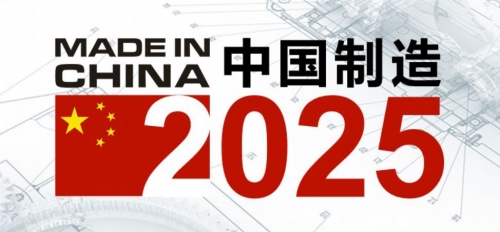
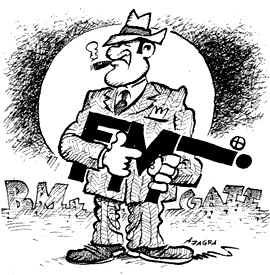

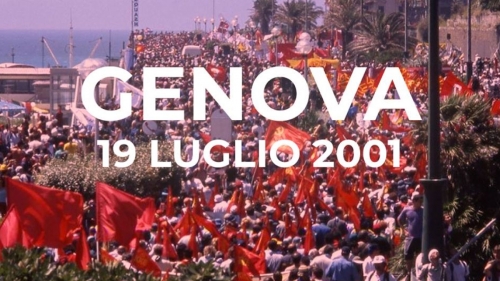
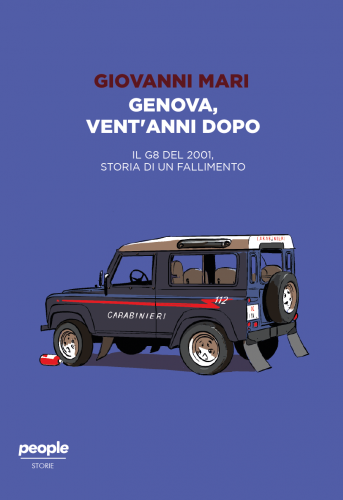

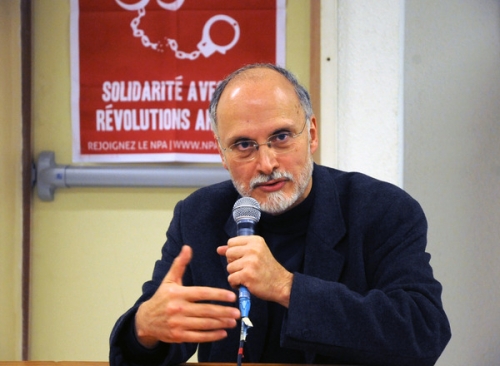
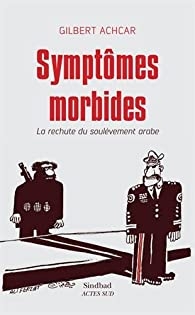

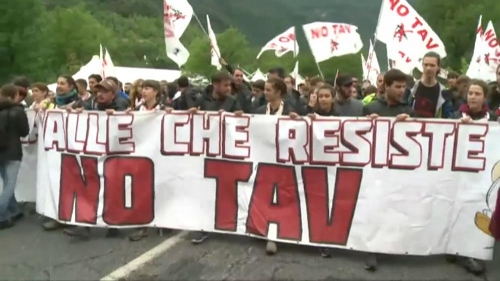
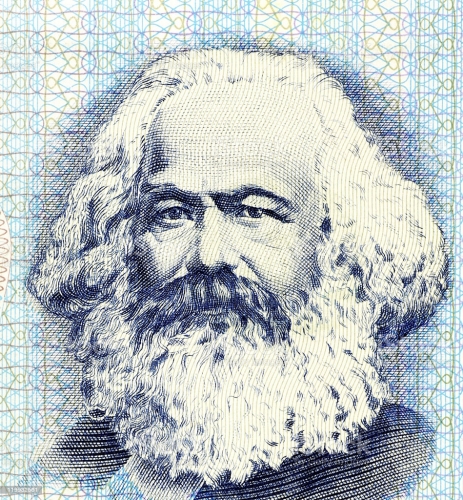
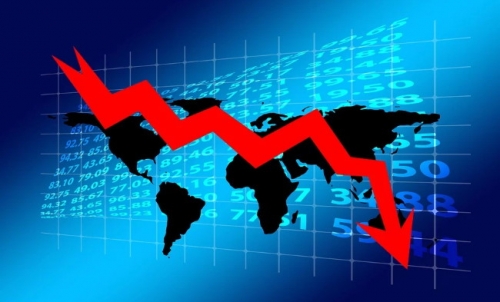


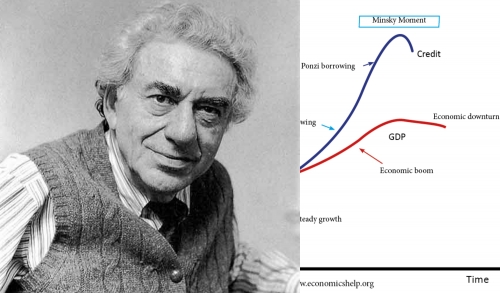

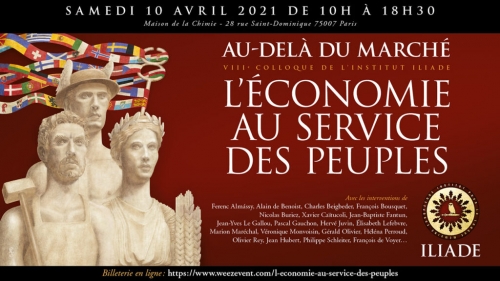


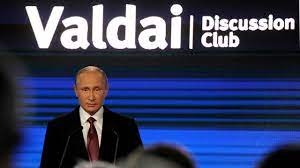

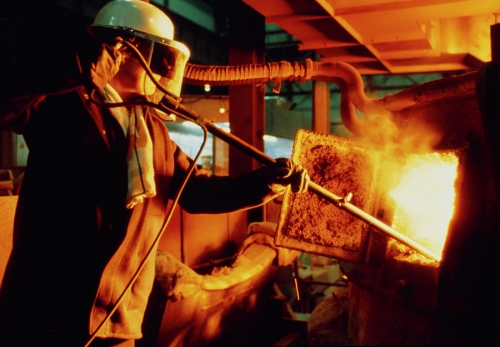




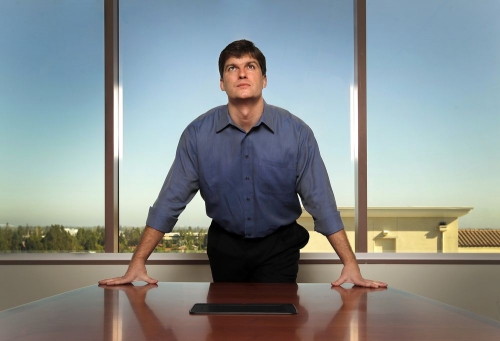



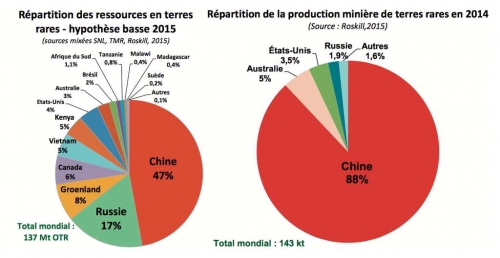
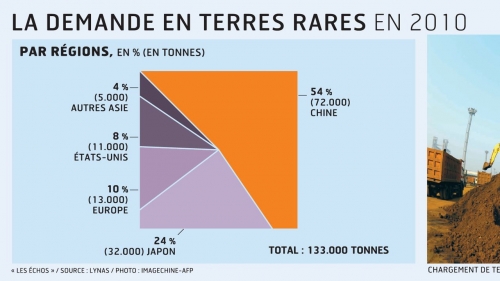
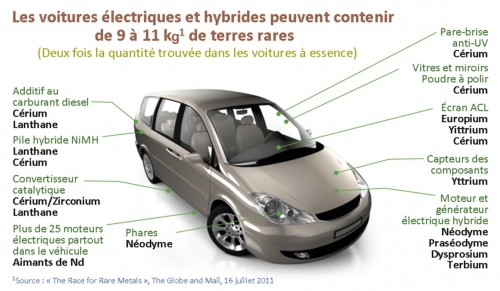

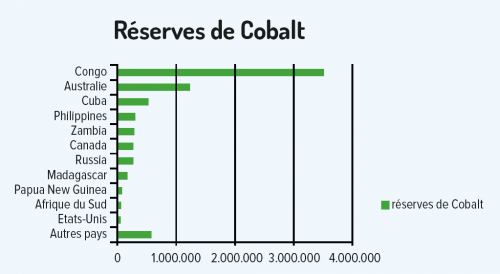
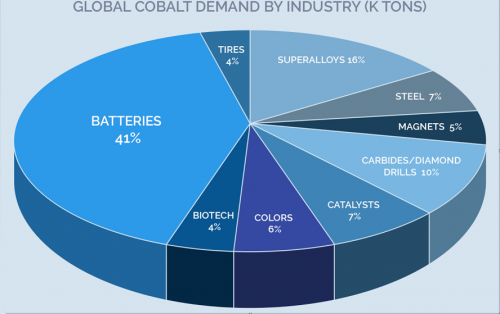
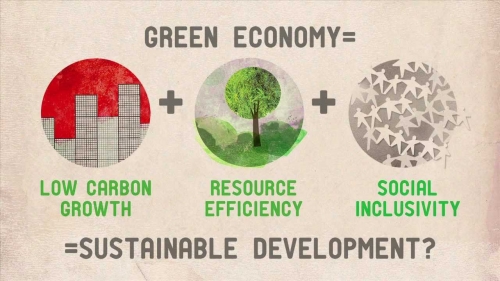

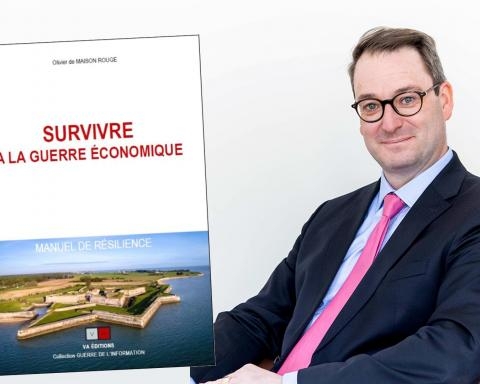
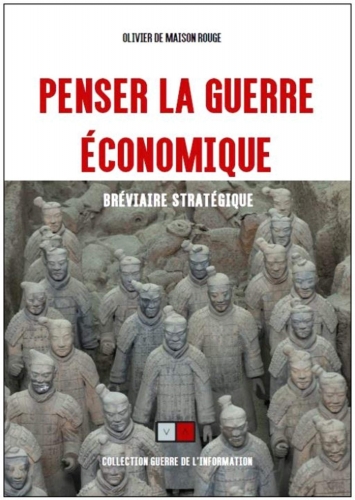
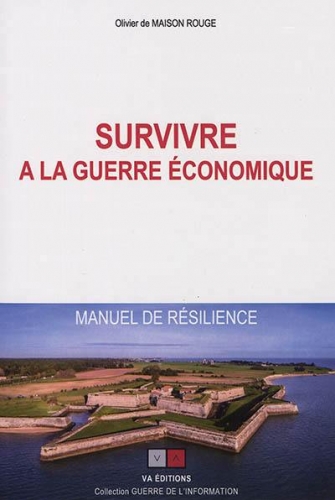
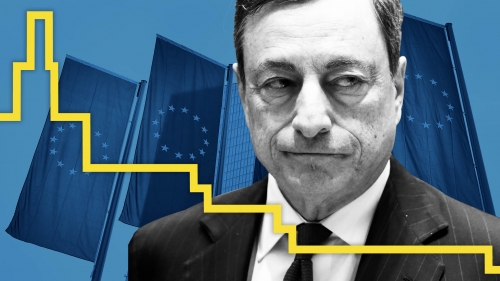
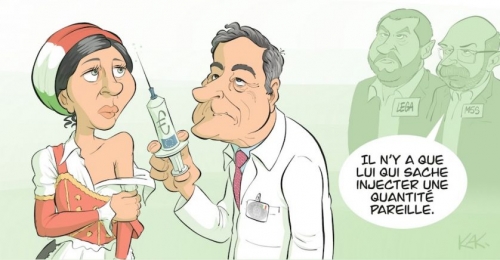




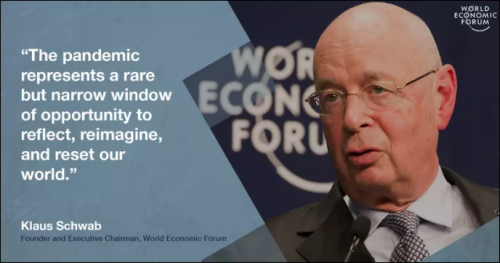
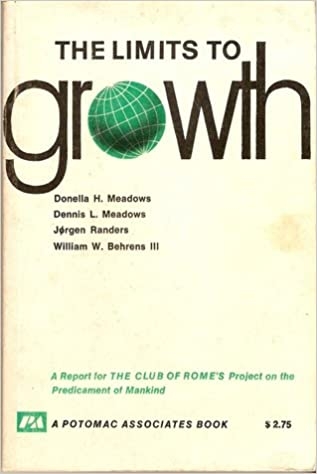 Le Rapport Meadows
Le Rapport Meadows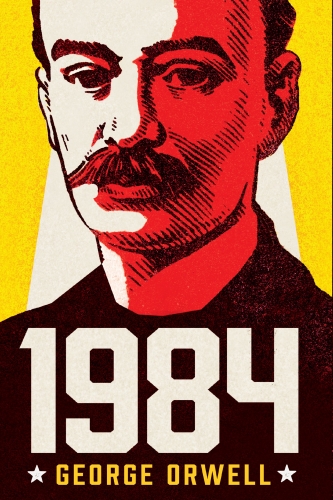 "1984" de George Orwell
"1984" de George Orwell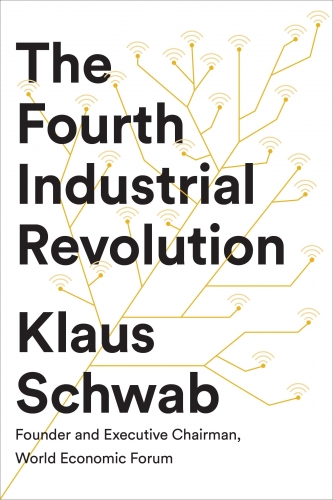 Elle vient d'un monde inique et pervers, qu'il faut réformer et un changement radical s'impose ! Profitons de cette occasion historique ! "Il s’agit, - clame d'en haut le tout-puissant Docteur Schwab, Président-Fondateur de Davos,- de rendre (le monde) moins clivant, moins polluant, moins destructeur, plus inclusif, plus équitable et plus juste que celui dans lequel nous vivions à l’ère pré-pandémique." Une véritable révolution ! Ni rouge ni noire, mais verte ! Elle rendra notre vie, déjà difficile, définitivement plate et sans oppositions.
Elle vient d'un monde inique et pervers, qu'il faut réformer et un changement radical s'impose ! Profitons de cette occasion historique ! "Il s’agit, - clame d'en haut le tout-puissant Docteur Schwab, Président-Fondateur de Davos,- de rendre (le monde) moins clivant, moins polluant, moins destructeur, plus inclusif, plus équitable et plus juste que celui dans lequel nous vivions à l’ère pré-pandémique." Une véritable révolution ! Ni rouge ni noire, mais verte ! Elle rendra notre vie, déjà difficile, définitivement plate et sans oppositions.
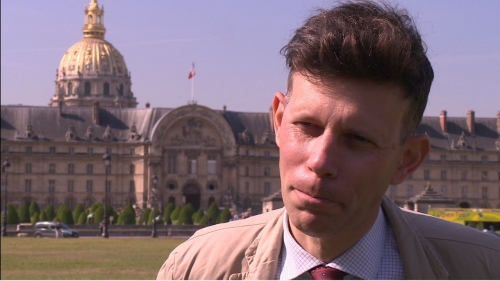
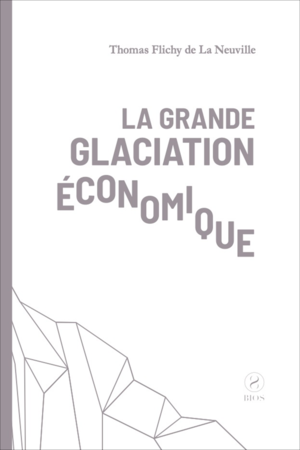 En l’an un de la révolution sanitaire, alors que chacun était confortablement isolé dans sa bulle numérique, la température chuta brusquement. La grande glaciation économique avait en effet commencé. Jadis flamboyants, les chefs d’hier se laissaient envahir par la dépression. 2021 fut donc un long hivernage marqué par l’effondrement démocratique, l’enfermement digital et la montée générale de la violence. Ce dernier entraîna la mort de nombreux caméléons politiques, prisonniers de leurs raisonnements captieux. Seule une infime minorité réussit à s’extraire de la tourbe et à survivre aux effondrements silencieux en cours. Puisant ses ressources dans la déconnexion et l’investissement artistique, ces chefs venus de nulle part réussirent à perpétuer la vie malgré les difficultés.
En l’an un de la révolution sanitaire, alors que chacun était confortablement isolé dans sa bulle numérique, la température chuta brusquement. La grande glaciation économique avait en effet commencé. Jadis flamboyants, les chefs d’hier se laissaient envahir par la dépression. 2021 fut donc un long hivernage marqué par l’effondrement démocratique, l’enfermement digital et la montée générale de la violence. Ce dernier entraîna la mort de nombreux caméléons politiques, prisonniers de leurs raisonnements captieux. Seule une infime minorité réussit à s’extraire de la tourbe et à survivre aux effondrements silencieux en cours. Puisant ses ressources dans la déconnexion et l’investissement artistique, ces chefs venus de nulle part réussirent à perpétuer la vie malgré les difficultés.
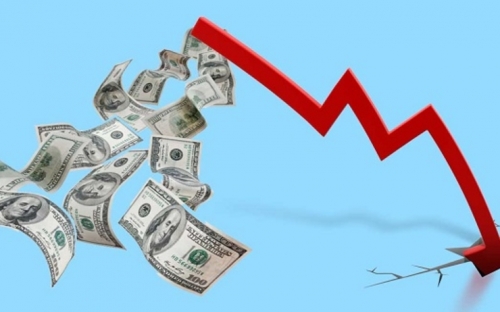



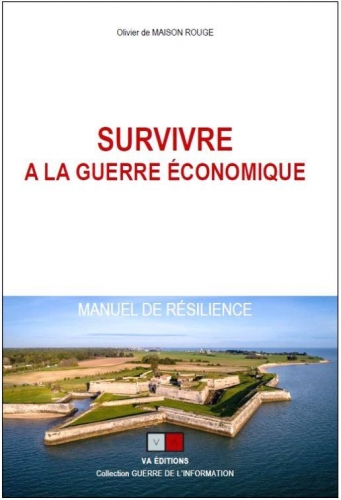

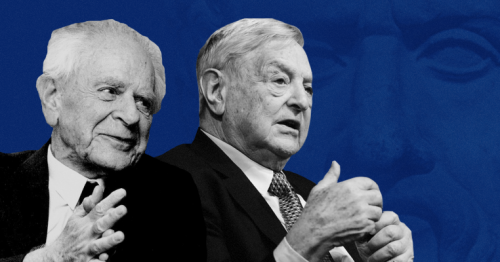
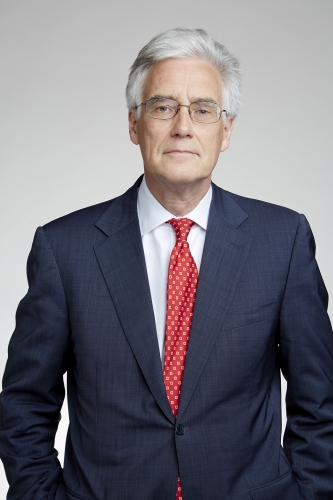 Parmi les autres cofondateurs figuraient Jim Balsillie et William Janeway, tandis que l’ancien président de l’INET n’est autre que Lord Adair Turner (photo).
Parmi les autres cofondateurs figuraient Jim Balsillie et William Janeway, tandis que l’ancien président de l’INET n’est autre que Lord Adair Turner (photo).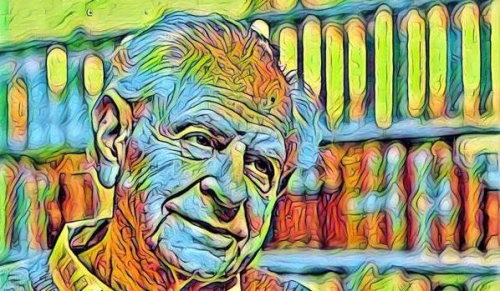

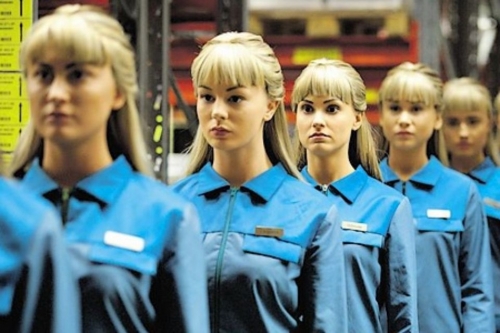
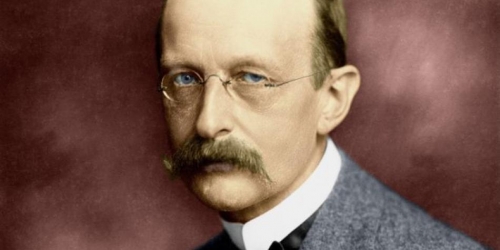
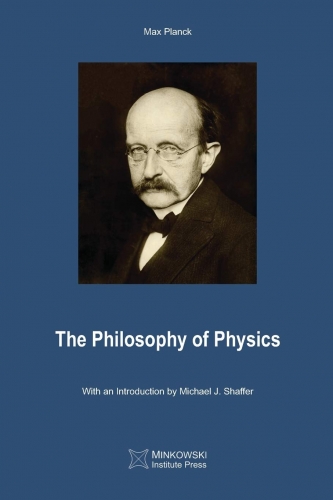 Dans ses deux œuvres incroyables Philosophy of Physics (
Dans ses deux œuvres incroyables Philosophy of Physics (
